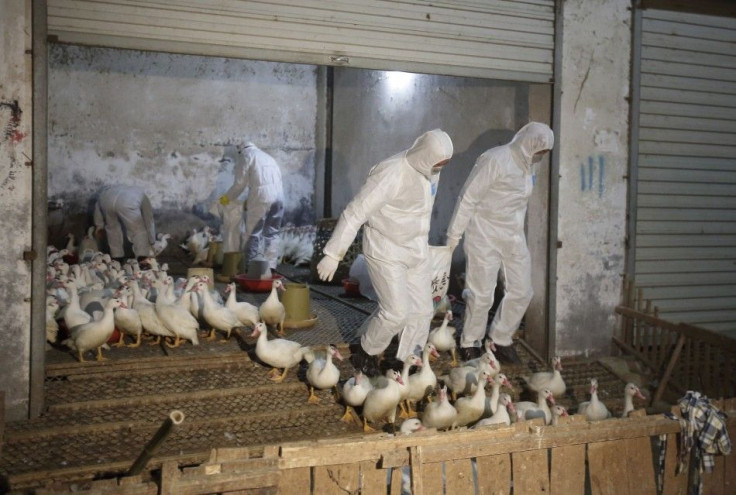H7N9 Bird Flu Virus: China Bans Live Trading, Hong Kong Slaughters 20,000 Birds

Days before the Chinese Lunar New Year and Chinese residents won't be serving chicken on their festivity tables. China has effected a ban of live poultry sales following a jump in the number of H7N9 infections. The ban covers large parts of eastern and southern China. Immediately on Tuesday, Hong Kong slaughtered 20,000 chickens found with the deadly bird flu virus.
The live poultry trading ban was ordered in three cities in coastal Zhejiang province where 49 cases and 12 deaths have been reported, the state-run Xinhua News Agency said.
The H7N9 fatal bird flu virus has killed 19 people so far this year in China. The number of infected has risen to 96.
Authorities discovered the H7N9 bird flu virus in a shipment of live chickens from the southern province of Guangdong. The ban will last until Feb. 18 until all necessary cleaning and disinfection have been made. Authorities said the celebration of the Chinese Lunar New Year festivity will most likely increase the opportunity for the virus to spread.
"If there are mass movements many people are traveling. The trains are crammed with people. The planes are full. People are running around everywhere. That always bears the risk of transmission of infections," Dr Bernhard Schwartlander, the World Health Organization's representative in China, was quoted by Chosun Ilbo.
In Hong Kong, the H7N9 virus was found in Cheung Sha Wan market in poultry imported from mainland China. Hong Kong's lone wholesale poultry market, Cheung Sha Wan is now closed for 21 days for disinfection.
Officials leading the mass slaughter wore masks and protective suits as they killed and piled the dead chickens into black plastic bags.
"A total of 22,604 poultry, including 16,984 chickens, 2,898 silky fowls, 1,080 pheasants and 1,642 pigeons were destroyed. They were sent to landfills for disposal," a government statement said.





















